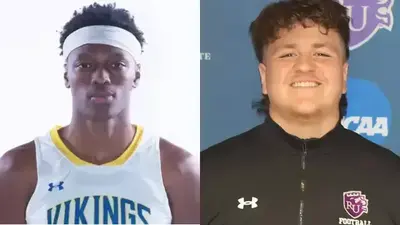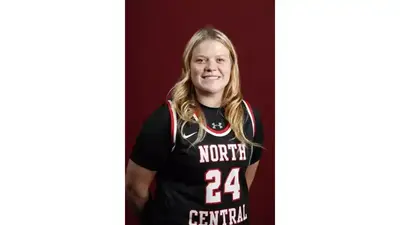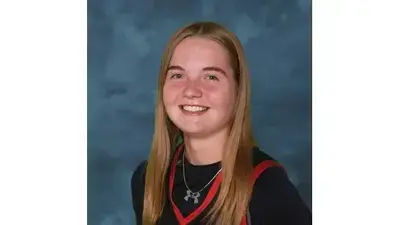Aprel Prunty, Alderman - Ward 6 | City of Rockford
Aprel Prunty, Alderman - Ward 6 | City of Rockford
City of Rockford Health and Human Service Supplemental Funding Committee met Dec. 3.
Here are the minutes provided by the committee:
I. CALL TO ORDER
| Attendee Name | Organization | Title | Status | Arrived | Departed |
| Kevin Frost | City of Rockford | Alderman | Present | 4:12 PM | |
| Chad Tuneberg | City of Rockford | Alderman | Present | ||
| Karen Hoffman | City of Rockford | Alderman | Present | ||
| Gina Meeks | City of Rockford | Alderman | Present | 3:20 PM |
1. Approval of Minutes from October 29, 2024
a. Approval of Minutes from the October 29, 2024 Meeting
i. Motion by Kevin Frost. Second by Chad Tuneberg.
ii. All approved. Motion carries.
| RESULT: APPROVED [UNANIMOUS]
AYES: Kevin Frost, Chad Tuneberg, Karen Hoffman ABSENT: Gina Meeks |
A. General Discussion regarding The City of Rockford Health and Human Services Department programs and funding.
a. Grant Approval Process
i. Currently for getting approvals, modifications, or increases for grants, the item needs to come before City Council before accepting funds.
ii. What our Department is proposing to Legal Department is an annual process that would display executive summaries of operations of our major grants, application management, regulations, client base, funding summaries, grant year periods, and grant purposes. This includes Head Start and Community Services. This is for the repeated grant funds that are received annually. These provisions are meant to streamline the process in accepting grants.
iii. Karen Hoffman: How do we give you immediate sign off results?
1. Anqunette Parham: COR HHS has presented a plan to the Legal Department that would be brought to this committee and the City Council to consider. In this proposal, the Health & Human Services Department would be given the ability to accept grants under limits that are set by the council. The frequency of updates is also up to this committee.
2. Chad Tuneberg: Are we looking at the possibility of all the funds or a threshold? What are some of these other municipalities doing?
a. Anqunette Parham: Across the other public entities, nobody is sharing a specific threshold. It was pretty much all the way or they were given the authority. That would be something unique to us. It us up to the committee to give permission for CAA to sign off under a certain amount. Whatever amount you deem. The grand we have to do that most often with is LIHEAP. There are always going to be modifications and those are typically sizable. For example, if we are getting an additional $500,000 for liheap, you can deem it acceptable to continue to accept that money until we have accepted a certain number of dollars. Or it can be individually every time they send it. Or you can say cumulatively. Again, it’s what this committee is comfortable with in.
b. Chad Tuneberg: I think as long as there’s curbs put in place for safety reasons for fraud. I would be personally fine with an update every six months. As long as there are checks and balances.
iv. Gina Meeks: With the modifications and additional funds you receive, are those funds from other communities that do not use those dollars?
1. Anqunette Parham: For LIHEAP, that is a big reason. Some communities in Illinois cannot find enough people to apply for the program. That money gets redistributed to communities who do need that. We are only second to Chicago in the utilization of liheap in the State. Sometimes additional federal money can come.
v. Karen Hoffman: What interval works best for all of you? 1. Chad Tuneberg: I think every six months is good.
vi. Todd Cagnoni: If the intention is to have guard rails and reporting but still want to expedite the process, you could make a recommendation coming out of this committee directing staff to look at ways to streamline the grant acceptance process while creating certain guardrails. We are not losing grants to due time. When our team has to jump, how many special council meetings do we have to have to get out? There are certain guardrails you would likely want to take into consideration. It would be a process where we would amend our grant policy that we currently have. Probably have some dual authorization. As of right now, the grant goes through the Department Head, Finance Director, and City Administrator to make sure it aligns with the policies of that organization. Then it ultimately goes to City Council. We would want to continue to have some of that in place which is administrative versus a council process. Especially for some of these ones that there’s not a perceived controversy. Maybe for new grants, they would be required to come before City Council for consideration to make sure it aligns with your policy thoughts. It comes down to what are the obligations and what is the liability for the organization? Every grant we receive has liability. We believe it’s a reasonable risk. Like any other community, if we stay within that norm, that would be something you would all be comfortable with us expediting.
1. Gina Meeks: Can you help me understand what the liability is?
a. Todd Cagnoni: If we use the funds inappropriate from grant rules, we would have to pay it back.
2. Chad Tuneberg: I’m sure there are already guardrails in place. I imagine the guardrails in place right now are sufficient. Being that you wouldn’t be reporting to City Council now for probably six months at a time, could you think of anything that should additional?
a. Todd Cagnoni: The guardrails I am thinking of, if you are committing funds from the City of Rockford other than grant funds likely needs to come back to council. If you are hiring staff, you would want to look at that if the grant requires to hire staff. I don’t have an opinion on that one, I am just throwing out things to think about. Clearly the one that commits money or a match, you’re going to want to know where the funding source is coming from, and does it align with the budget.
3. Todd Cagnoni: The spirit of the conversation is LIHEAP, Weatherization, CSBG, and Head Start.
a. Anqunette Parham: Anything that is new would have to go through the new process.
4. Todd Cagnoni: There is a huge amendment coming to our Head Start Program for an amended application. Anqunette and Faniqua read it in on Monday. Some of it has already been implemented but it’s a significant change. Those changes are driven by Head Start rules. But it’ll have an impact on what we pay our folks to stay in compliance, the number of individuals we serve, and that’s an example of something that we should be reporting to you. You should know we are doing it so we don’t say “How did this happen?”
a. Anqunette Parham: Those operations (Head Start) will look different. Whereas all the other grants we are talking about, it’s typically more money to do more of what we have been already doing. It’s not a change of scope. Its more resources coming in. It’s continuing the same work. Some of our funders will be relieved because our grant managers change often and we have to go through the whole explanation and process with them. There are 9 public agencies across the state, we are in the minority. Quite often, the Department of Commerce and Economic Opportunity (DCEO) is annoyed at the time it takes for us to get things signed because for the public agencies, it’s a lengthy process. I’m happy with whatever we decide to make it more efficient. So if you want reports every six months on who gave us more money for what we had been already funded for, we would be happy to report that.
b. Todd Cagnoni: It’s not uncommon for Community Services, Family Peace Center, and Police work with federal grants to backdate those grants. We just had one come through from either you (Anqunette) or Jennifer (Cacciapaglia).
i. Anqunette: Yes, it was the BRP Grant.
ii. Todd Cagnoni: We just did a special council and committee because the grant year started a month ago. We cannot start without an executed grant.
5. Gina Meeks: Are new ones going to continue to go through Council?
a. Anqunette Parham: New ones will continue to go to council. Modifications and additional funds for that have been approved under that annual plan will go with the internal guardrails. We would still need sign off from myself, Director Haggerty, and Todd to proceed with those.
i. Chad Tuneberg: Great
ii. Karen Hoffman: Just get it done.
iii. Gina Meeks, Yeah, I love that.
iv. Todd Cagnoni: We can collectively work on that.
b. Direct Client Delivery Options
i. One of our most significant needs has been improvements to our infrastructure, namely an electronic means of applying for services. The phones crash due to the volume of calls. We have been working with IT Director Todd Hughes to ensure any online system would be in line with IT’s policies. We have been seeing demos and getting estimates for a system that can manage online applications.
1. Only one agency in the State of Illinois utilizes an online application, CEDA (Cook County).
ii. Todd Hughes: Instead of having physical documents and paperwork for appointments, clients would submit those online and complete questionnaires. That would free up staff to do other objectives.
iii. Anqunette Parham: At the moment, our current budget does not allow for an online system.
1. During the COVID Pandemic, funds were allocated for direct client assistance but also for electronic application systems. We used a system called Neighborly for those applications. Those funds have not been available for some time.
iv. Anqunette Parham: With the time savings of online applications, we would be able to process more applications. At the end of the program year, there are still people calling for help. Every year we have households who are not able to receive services.
v. Todd Hughes: The benefit of an online application is having digital documents. You do not have to store thousands of files and documents. Digital documents can be printed on demand if necessary.
c. Other Needs
i. Anqunette Parham: We don’t have a staff member who is a designated grant writer whose responsibility is to pursue additional funding for the department. Within our current grants, doing applications for different grants is not an allowable expense under the guidelines of those programs. Having supplemental funds to cover grant writing would allow for additional opportunities to help residents.
ii. Gina Meeks: I have always been a fan of getting the customer service down with the online system. I also like the idea of getting a grant writer.
1. Karen Hoffman: It would help both residents and staff be more efficient in meeting the needs of the community.
b. Recommendation from the Health & Human Services Supplemental Funding Committee:
i. Todd Cagnoni: The recommendation of the committee is to streamline the grant approval process for standard and ordinary grants, to allocate $200,000 for the acquisition and implementation of software for LIHEAP, Weatherization, and other CSBG functions for Health & Human Services, and allocate $50,000 for grant writing to apply and potentially secure additional funding to support the work of the department.
1. Motion by Gina Meeks. Second by Chad Tuneberg.
2. All approved. The motion carries.
B. Determine the necessity of future meetings.
a. Karen Hoffman: We still need at least one more meeting in January 2025. Our recommendation can go to council now and for the next meeting, we can discuss other items.
i. Gina Meeks: There are still at least two priority items that need to be discussed. I would like to explore those more.
b. The next Health and Human Services Supplemental Funding Committee Meeting will be determined at a later date.
IV. ADJOURNMENT
The meeting was closed at 4:45 PM
http://rockfordcityil.iqm2.com/Citizens/FileOpen.aspx?Type=12&ID=2679&Inline=True





 Alerts Sign-up
Alerts Sign-up